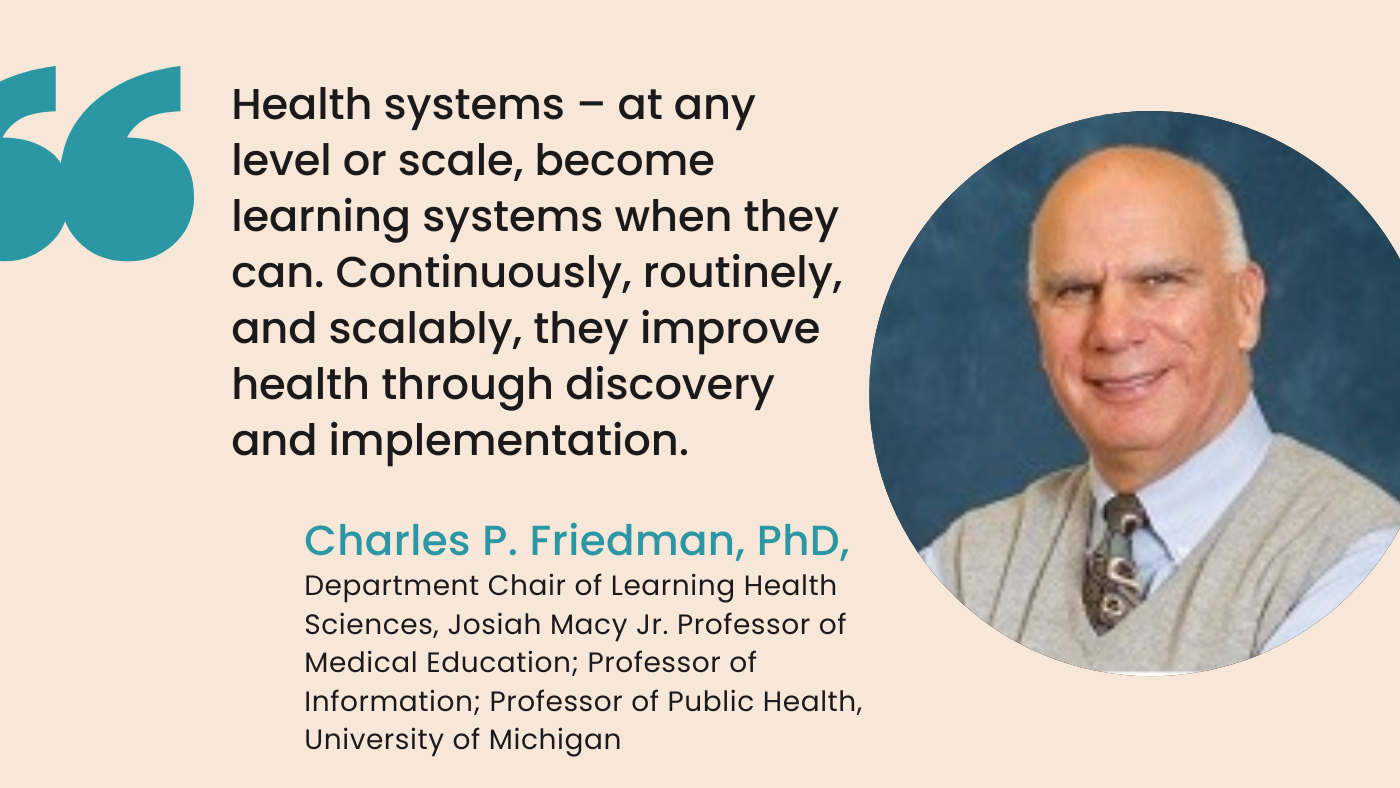PaTH Clinical Research Network and MICHR Launch Discovery-to-Implementation: Collaboratory Research to Improve Health
Accelerating progress toward an integrated learning health system (LHS) is one of the Patient-Centered Outcomes Research Institute (PCORI)’s national priorities for health, with the goal of fostering actionable, timely, and transformative improvement in patient-centered experiences, and to improve health outcomes.
The PaTH Clinical Research Network, aligning with this priority from PCORI and working with MICHR and other academic research institutions, developed the Discovery-to-Implementation Collaboratory and held its first inter-institutional virtual forum earlier this year: Collaboratory Research to Improve Health.
PaTH’s Discovery-to-Implementation forums brought together various stakeholder groups from multiple health communities to share key learnings through research from affiliated health systems and to explore the potential for forming learning communities.
U-M and MICHR’s Charles Friedman, PhD and Dave Williams, PhD, along with Gregg Merritt, PhD (PatientisPartner.com) and University of Pittsburgh’s Kathleen McTigue, MD, MS, MPH, invited patient partners, caregivers, clinicians, health system leaders, payers, implementation scientists, and partnering community organizations from seven PaTH-affiliated research institutions to engage in this learning health system series.

The January 13 event gathered over 90 participants representing various perspectives of health care to discuss how best to implement clinical research findings into healthcare systems and communities. The hope was to spur planning of next steps, including the formation of learning communities, quality improvement projects, and/or dissemination of implementation science grants. Initially the collaborators responded to pre-event surveys to prioritize 21 (2020-2022) PaTH Network research articles and then narrow those down to five articles and topics for discussion.
The second two-hour session was held on January 20 looking at the aggregate data on the five topics. The collaborators further narrowed the five down to three topics, prioritizing back pain, frailty, and hypertension. The participants then separated into breakout rooms for discussions around how to improve care and outcomes through development of topic-specific learning communities.
By bringing these various perspectives together from across this research network, organizers hoped to develop a robust incubator event for growing engaged “learning communities” that foster research implementation to improve health across our network.
Three elements make the LHS approach to health improvement different from other approaches: 1) Embraced uncertainty requiring discovery, 2) Diverse and equitable learning communities enabling continuity, and 3) Infrastructure: shared services enabling scalability.
The PaTH Network has committed itself to supporting the development of learning communities that grow from the Discovery-to-Implementation process. To assess impact during the multi-institution, multi-stakeholder event, we asked, does the research:
-
Make a substantial improvement in health or healthcare?
-
Improve health equity?
-
Being adopted by health systems to improve care?
Applying research findings to the standard practice of health care has traditionally taken 10-20 years, a pace that is frustrating to patients, care providers, and other constituents of our health systems. Through the Learning Health Systems process, the PaTH Network is able to provide an integrated collection of health data, analysis of the data to generate new knowledge, sharing of the knowledge to develop health care advice, implementing changes based on that advice, and returning to the beginning of the cycle to gather new data.
The PaTH Network is composed of seven health care systems: Geisinger Health System, Johns Hopkins University and Johns Hopkins Health System; Penn State College of Medicine and Penn State Milton S. Hershey Medical Center; Lewis Katz School of Medicine at Temple University and Temple Health System; University of Pittsburgh, UPMC (lead); The Ohio State University, The Ohio State University Wexner Medical Center; and the University of Michigan and Michigan Medicine, represented by MICHR and their Network-Based Research Unit.
PaTH is a Partner Network in PCORnet®, the National Patient-Centered Clinical Research Network. PCORnet® has been developed with funding from the Patient-Centered Outcomes Research Institute® (PCORI®). PaTH’s participation in PCORnet® and development of this event was funded through PCORI® award RI-PITT-01-PS1.